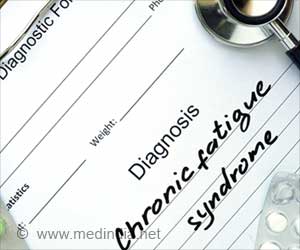The next time you feel your child is not plump enough, think again. A recent study by Reis and others, published in the journal JAMA, has shown that prolonged obesity (> 20 years) increases the risk of coronary heart disease (CHD) in young individuals.
According to the World Heart Federation, there are 400 million adults who are obese, of whom 1 billion people are overweight. In the overweight category, 17.6 million of them are children under the age of 5.Obesity is measured by calculating the ratio of the weight in kilograms to the square of the height of the individual in meters, also known as body mass index (BMI). The ideal BMI for good health should be in the range of 21-23 kg/m2. Individuals with BMI ≥ 30 are considered obese. Obesity is a metabolic risk factor for CHD. Coronary heart disease affects blood vessels supplying the heart muscle.
Reis and others observed 3275 young adults, aged 18-30 years, who did not show any signs of obesity when the study was initiated in 1985-1986. Overall and abdominal obesity were measured using BMI and waist circumference as units of measure. At the end of 25 years, overall obesity was observed in 40.4% and abdominal obesity in 41% of the study population. Individuals showed a 2-4% increased risk of CHD for each progressive year of obesity.
Coronary arterial calcification (CAC) or calcium deposits in arteries, a risk indicator of subclinical heart disease, was measured with computed tomography for the last 10 years of the study. The proportion of individuals, with increased overall or abdominal obesity and showing CAC, were 25.2% and 27.7%.
Obesity Heart Disease Statistics
According to the World Health Organization, 17 million deaths (48% of non-communicable diseases) are attributed to cardiovascular diseases. One of the main risk factors is physical inactivity, which leads to the physiological change of obesity in individuals. Each year, 2.8 million people die worldwide due to obesity. Obesity contributes to 5% of the risk factors for CHD.
Resting heart rate for normal individuals ranges from 60-100 beats per minute (b-min-1). Research has found the risk of developing obesity is increased when the resting heart rate crosses 80b-min-1. Another study has shown that the maximal heart rate of obese individuals can average upto 180 ± 9b-min-1.
Obese patients, who undergo cardiac surgery, tend to show certain postoperative complications such as prolonged ventilation, gastrointestinal, and pulmonary complications. Obesity, however, is not associated with increased mortality in patients undergoing cardiac surgery.
Obesity in India
Obesity in India is increasing at an alarming rate with 30 million Indians being termed as obese. In India obesity accounts for 1.9% of the estimated risk for noncommunicable diseases, of which 24% mortality is attributed to cardiovascular diseases.
While technology has certainly improved our daily existence, it has also created a sedentary lifestyle for most of us. Obesity is now more common in affluent countries compared to lower-income nations. The link between obesity and increased risk of heart disease, in young adults, will take a toll on the healthcare system of these countries in the near future. Strong government initiatives to promote a healthy, fitness-based lifestyle, among the younger generation, will go a long way in improving the economic and social wellbeing of the global community.
References:
Franckowiak SC, Dobrosielski DA, Reilley SM, Walston JD, Andersen RE. Maximal heart rate prediction in adults that are overweight or obese. J Strength Cond Res. May 2011;25(5):1407-1412.
Source-Medindia















